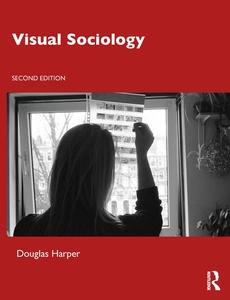
Free Download Visual Sociology
by Douglas Harper
English | 2023 | ISBN: 103217109X | 329 pages | True PDF | 143.21 MB
This new version of the authoritative textbook in the field of visual sociology focuses on the key topics of documentary photography, visual ethnography, collaborative visual research, visual empiricism, the study of the visual symbol and teaching sociology visually. This updated and expanded edition includes nearly twice as many images and incorporates new in-depth case studies, drawing upon the author's lifetime of pioneering research and teaching as well as the often neglected experiences of women and people of colour.
The book examines how documentary photography can be useful to sociologists, both because of the topics examined by documentarians, and as an example of how seeing is socially constructed. Harper describes the exclusion of women through much of the history of documentary photography and the distinctiveness of the female eye in recent documentary, a phenomenon he calls 'the gendered lens'. The author examines how a visual approach allows sociologists to study conventional topics differently, while offering new perspectives, topics and insights. For example, photography shows us how perspective itself affects what we see and know; how abstractions such as "ideal types" can be represented visually; how social change can be studied visually, and how the study of symbols can lead us to interpret public art, architecture and person-made landscapes. There is an extended study of how images can lead to cooperative research and learning; how images can serve as bridges of understanding, blurring the lines between researcher and researched. The important topic of reflexivity is examined by close study of Harper's own research experiences. Finally, the author focusses on teaching, offering templates for full courses, assignments and projects, and guides for teachers imagining how to approach visual sociology as a new practice.
This definitive yet accessible textbook will be indispensable to teachers, researchers and professionals with an interest in visual sociology, research methods, cultural theory or visual anthropology.
Links are Interchangeable - Single Extraction
